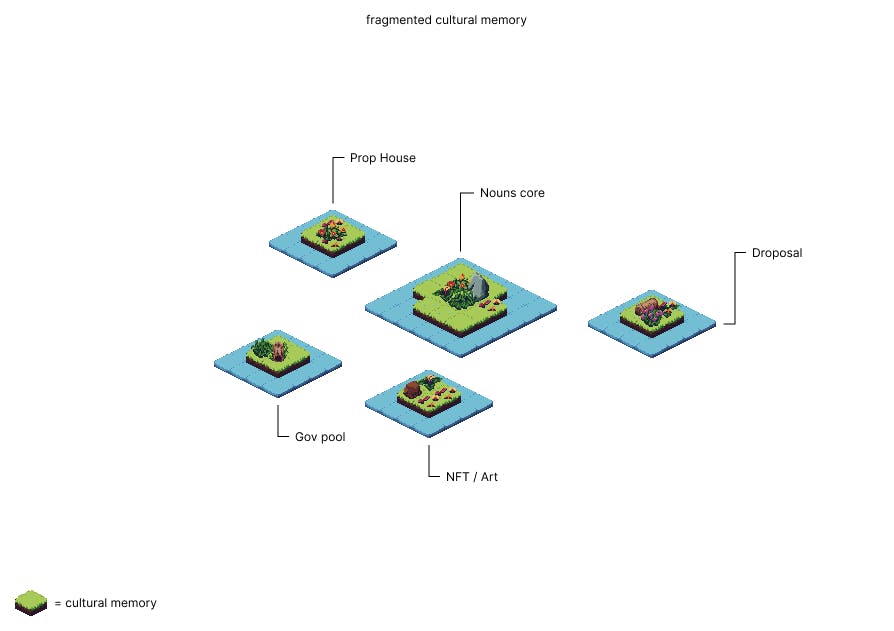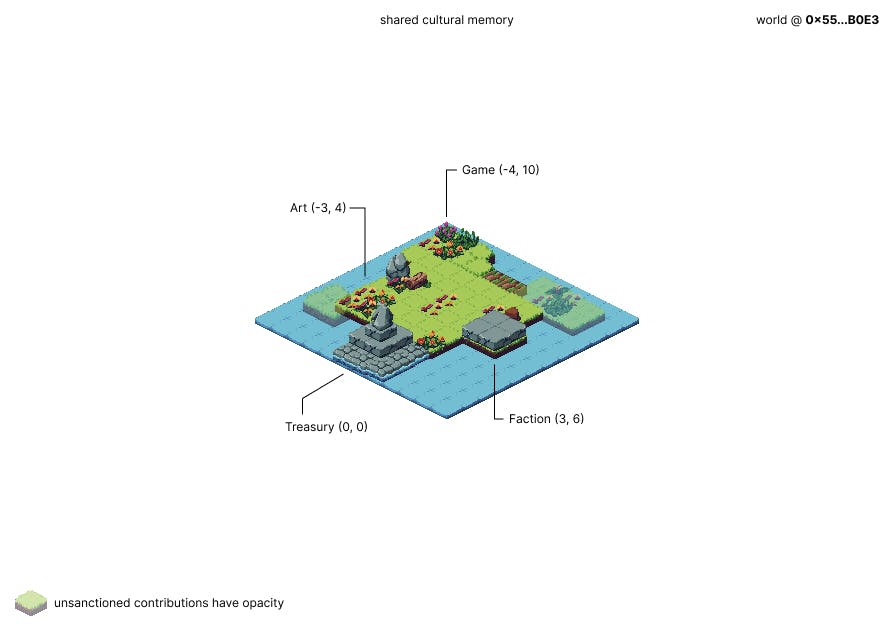In this post I introduce the concept of cultural memory and how communities like Nouns can leverage shared storage as a natural evolution to their existing world building efforts.
If you visualized the technical landscape of Nouns you’d see the core contracts (auction, governor, NFT) surrounded by a sea of projects that introduce new experiences outside of the core protocol’s scope. This content defines the cultural memory of Nouns, physical block space embracing a common idea.

In Nouns we fill that space by funding art, movies, and new tech which lead to the shared experiences that define our culture.
Notice how the space is fragmented. In a digital world like Nouns, you'd expect it to be continuous. Currently, protocols live in isolation and interact with one another at strictly defined boundaries as if they were themselves separate worlds. Leading to a lack of discoverability for new projects and blurred lines between what becomes cultural canon or not.

The focus of world building should be directed towards creating a community operating system rather than forcing contributors to extend an ecosystem of fragmented APIs.
Art and other forms of user generated content could occupy the same space as well, allowing one to determine the “cultural value” of a community by measuring the area of space it occupies onchain.
Implementing cultural memory
The obvious solution for extending a community with cultural memory would be to have it manage its own chain, but the resources required and fragmentation caused relative to the rest of the crypto ecosystem make the risk of doing that too high.
A lightweight alternative is to structure communities as if they were themselves onchain games. Thankfully, the tools and patterns required to do this already exist. Game frameworks like MUD provide most of the infrastructure to make this happen. Specifically its ECS model and implementation of Store and World contracts. [i]
[i] In MUD, Store acts as a global database providing the physical space for cultural memory to accumulate, while World provides a way for contributors to securely share it.
Benefits
Communities like Nouns are uniquely positioned to experiment with extending themselves by hosting their own worlds onchain, funding their expansion, and accumulating cultural memory.
Since everyone has read access to world state and anyone can extend it with new data, world builders can offer experiences through mods that are immediately discoverable by front end clients such as:
-
Extending core governance with new world state such as prop / vote reactions
-
Concepts such as "position" or land in space
-
Fan art that can directly associate itself with a community by occupying the same world, solving for content discoverability issues
-
New types of clients and emergent behavior
Although most protocols are currently designed to be composable, the lack of shared global state leads to central planning behavior that disincentivizes permissionless innovation.
I understand that a lot of this post is abstract. For a deeper understanding of MUD I recommend spending a couple minutes watching this video:
Further reading
The team at 0xParc have written a couple of posts about “Autonomous Worlds” that I recommend reading if this topic interests you:
If you want to know more about how ECS models work in game development: